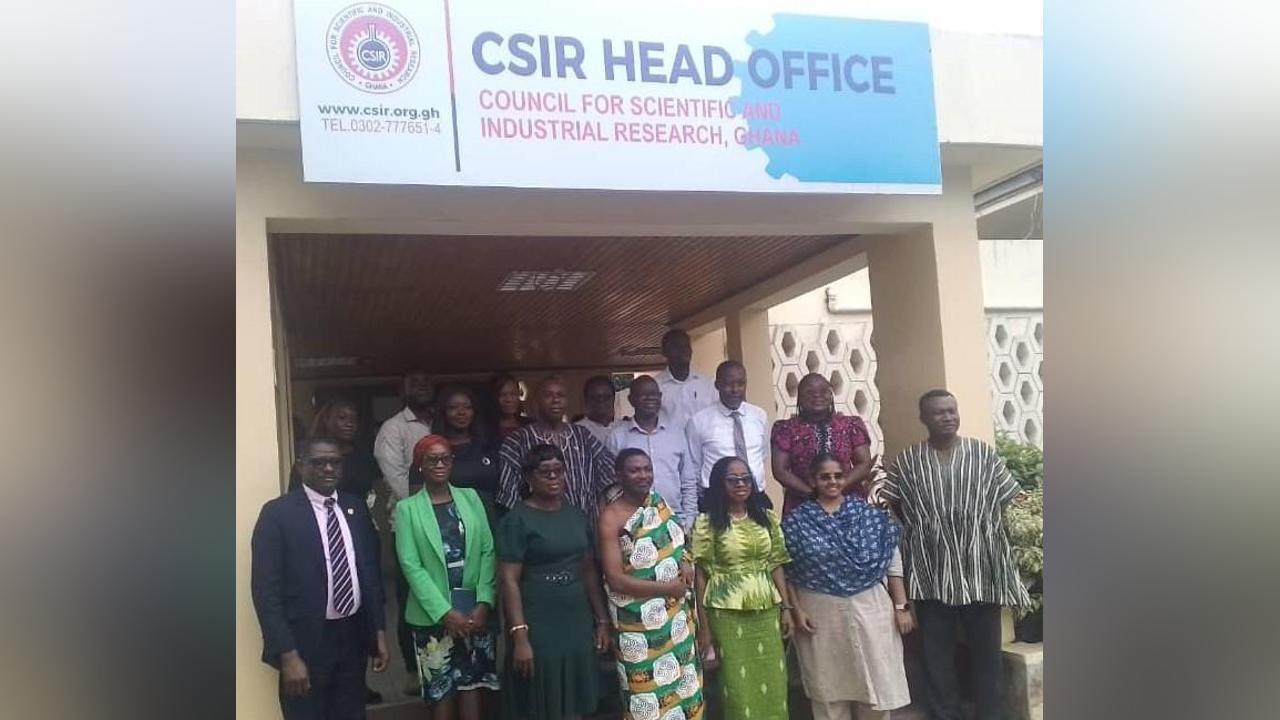Africa-Press – Ghana. Ghana’s premier scientific research institution and a private agricultural firm have signed a major agreement to cultivate wheat in commercial quantities for the first time, a landmark move to cutting the nation’s reliance on imports.
The Memorandum of Understanding (MoU) signed between the Council for Scientific and Industrial Research (CSIR) and Arima Farms Limited on Thursday formalises a partnership agreement that has been testing wheat varieties since 2013.
The collaboration seeking to bolster food security through a private sector-driven research model also aims to expand the production of soybeans, introduce advanced
farming technologies from India, and create a complete value chain from seed to market.
Speaking during the session, Professor Marian Dorcas Quain, Deputy Director-General of CSIR, said the initiative supports the government’s reset agenda, particularly the “Feed Ghana” model, aiming to substituting imports with local produce and conserving foreign exchange.
“If we don’t grow, why should we import wheat?” Professor Marian Dorcas Quain, Deputy Director-General of the CSIR quizzed. “With this reset agenda and the CSIR interventions with Arima Farms, we are going to be growing wheat locally in Ghana. This is going to save us a lot of money that we don’t have.”
The CSIR, which operates 13 institutes and about 60 stations nationwide, is providing the scientific backbone for the project.
The MoU is a key part of its five-year strategic plan, launched in 2023, to ensure its research is driven by private sector needs.
The partnership extends beyond wheat to include soybeans, vegetables, and improving soil health. “This MoU goes beyond just the wheat,” Prof. Quain said, noting that it aligns with CSIR’s strategic plan to pursue private sector-driven research.
CSIR is responsible for testing and validating crop varieties to ensure they are suitable for Ghana’s climate and soil before they can be officially registered and released to farmers.
Prof. Quain said; “CSIR is the place where scientific data can be generated for the introduction of crop varieties into the country,”
“You just can’t come into Ghana with your seed and grow it,” she explained. “You have to bring it, test it across the country, look at its performance, register it with the… Plant Protection and Regulatory Services Directorate, before you can utilize it. CSIR is a place where scientific data can be generated.
After trials in northern Ghana and Fumesua in the Ashanti region, she said, researchers have already selected 20 promising wheat lines for further development.
Arima Farms, which initiated its relationship with CSIR in 2021, brings private sector investment and a focus on commercial execution.
The company is securing farmlands in the Drabonso and Kumawu areas of the Ashanti region, in collaboration with the Catholic Diocese of Kumasi, for seed multiplication and cultivation.
Ms. Saalai Manikam, Managing Director of Arima Farms Limited, emphasized the project’s community focus stating, “Ours is a social enterprise where community development is equally important, not only commercial development.”
“We want to bring an end-to-end solution from training to the off-take, to the farmers, which will include all the input from our side and be buy-back,” she added.
The project will leverage technology and mechanization partners from India. Arima has arrangements with Mahindra & Mahindra for tractors and farm implements.
Jain Irrigation, the world’s second-largest irrigation company, will provide affordable solutions crucial for mitigating climate risks.
Arima is also facilitating technology transfer to help CSIR advance its coconut research.
“Looking at the climatic condition, if you are farming and you don’t have irrigation, the risk level is very high,” Barima Acheampong Sarpong II, Asante Asamanhene, said.
He noted that significant investment had already been made, stating, “If you’re doing research, you need to spend a lot of money.” We spent a lot of money to get to where we are.”
The initiative has received strong backing from traditional authorities, including the Asantehene, Otumfuo Osei Tutu II, who has been instrumental in making land available.
Barima Sarpong II, who is also Director, Business Development at Arima Farms, explained that the project aimed to create jobs, particularly for young people, by training them as “agri-preneurs” who will manage plots of land within the larger farm.
It also introduces a new, fully mechanizable soybean variety.
While soybeans could be available to farmers within one to two years, the more complex release process for wheat means it could take two to three years to reach the market, according to officials.
The partners are optimistic about the long-term impact and are already exploring export markets. “We are signing now with an Indian Food… company that they want to sign off to for us to cultivate here and send, they will buy,” Barima Sarpong II said.
“We believe in research,” he added. “We plan that in the next 10 years Ghana will be a wheat sufficient country.”
“I think that with the research backing private individuals partnering with us we will be able to achieve that.”
For More News And Analysis About Ghana Follow Africa-Press







